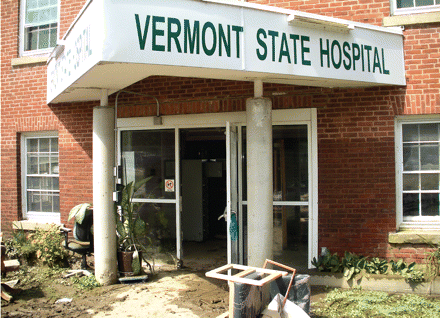When floods inundated the Vermont State Hospital, the state's public psychiatric facility, it took only a few phone calls to help find alternate sites to care for patients.
Flooding from Hurricane Irene washed out roads and bridges in Vermont in August. The Winooski River in Waterbury rose through its flood plain on Sunday, August 28, crept across the hospital parking lot, and poured into the ground floor of the building, recalled Jaskanwar Batra, M.D., medical director there and an assistant professor of psychiatry at the University of Vermont in Burlington.
Hospital staff had prepared for that eventuality and moved the patients in the first floor unit up one flight, said Batra in an interview.
Batra and his colleagues had planned for wind damage, but the rapid rise of the river still surprised them. The water ultimately reached a depth of six and a half feet in the building's first floor, flooding the hospital's backup generator and putting the whole building out of service. (Lesson learned: Place backup generators on the roof.)
It could have been worse. State authorities could have released water from the Marshfield Dam upstream, adding another three feet of water and flooding the second floor. Luckily, that proved unnecessary.
But when Batra arrived at 6 the next morning, water was gushing out of the building, leaving behind a layer of mud and sludge. With the electricity gone and the building a mess, he knew the 51 patients had to go elsewhere.
"Fortunately, this is a small state, and all of us who work on psychiatric units know each other," he said in an interview. "It was impressive how everybody came together to help our patients."
The Brattleboro Retreat, a private psychiatric hospital, accepted 16 patients, and the University of Vermont's Fletcher-Allen Hospital took another seven. Others went to group homes or to a hospital site on the grounds of (but not part of) a state correctional facility. The staff also accelerated discharge for six patients who were nearly ready for release before the storm struck.
"The patients generally handled the move well," said Batra. "The vast majority understood why they had to leave, although a few had strong destabilizing reactions, but no truly bad outcomes."
Vermont's governor announced last spring the start of planning for a new psychiatric hospital for the state, so Batra doesn't know yet if the old building will be rehabilitated or if the hospital will move into temporary quarters until a new one is built.
But at least he knows who his friends are.


